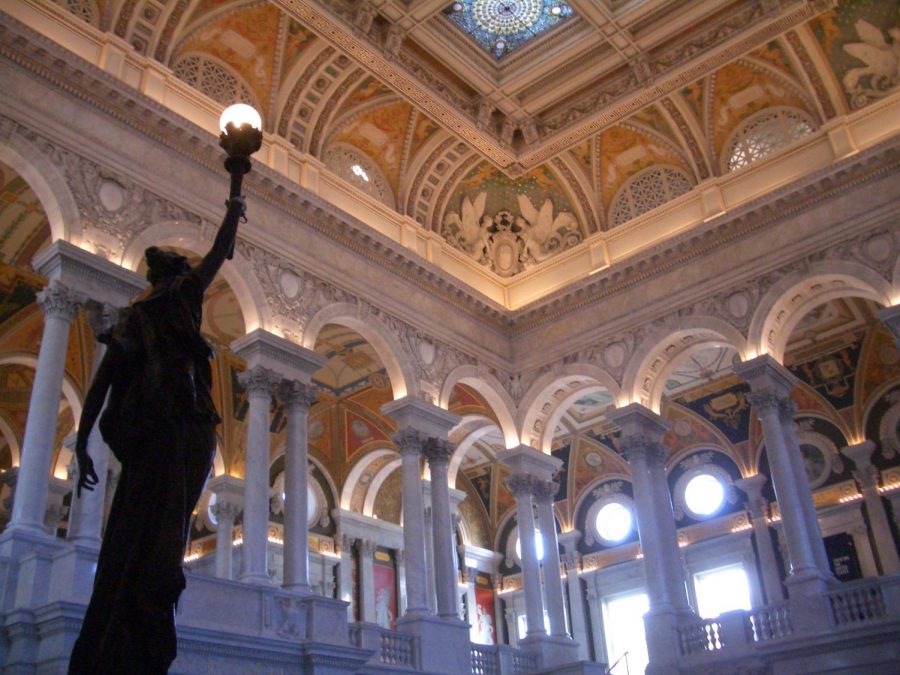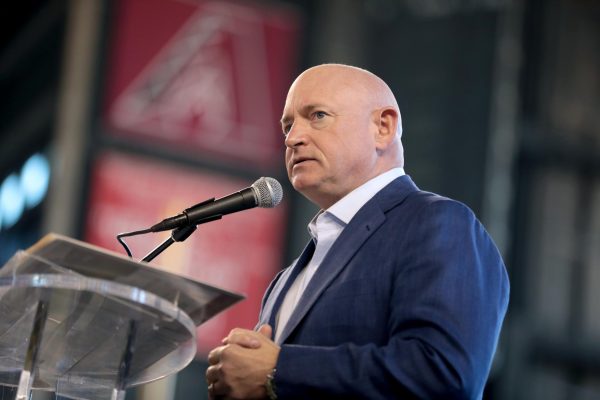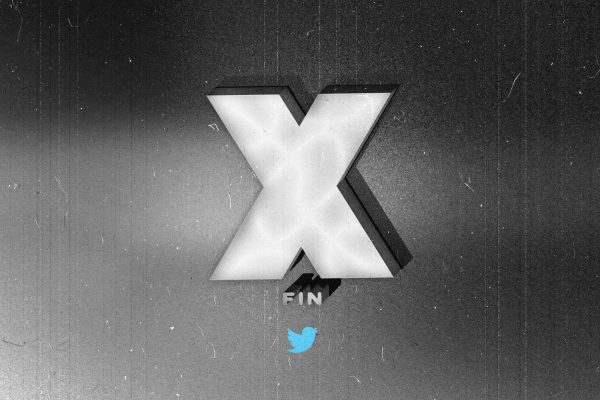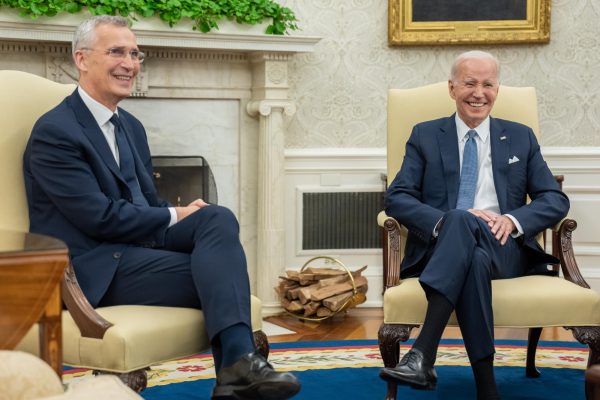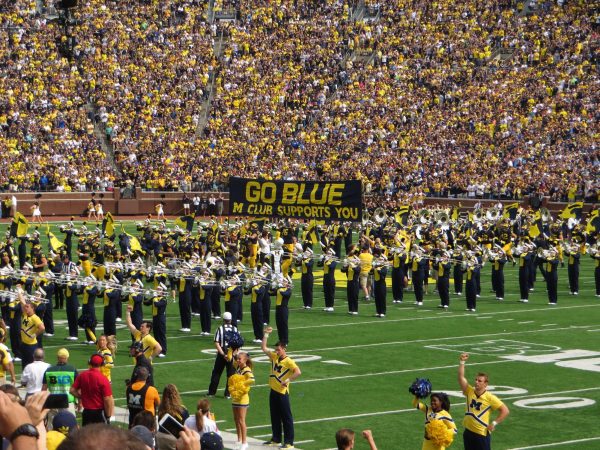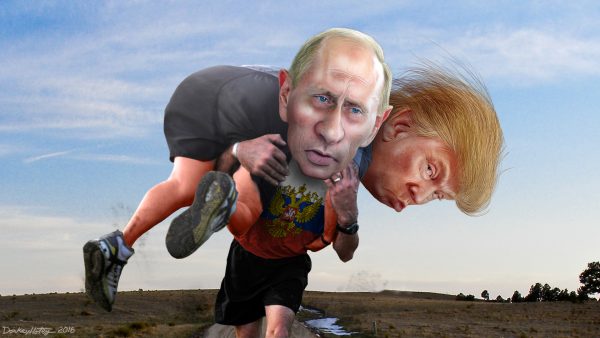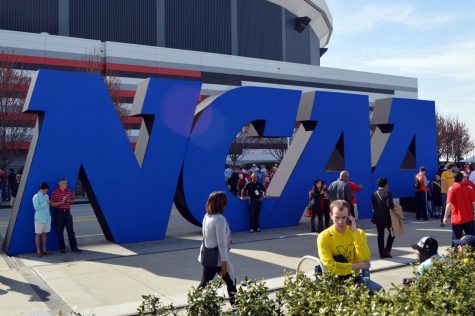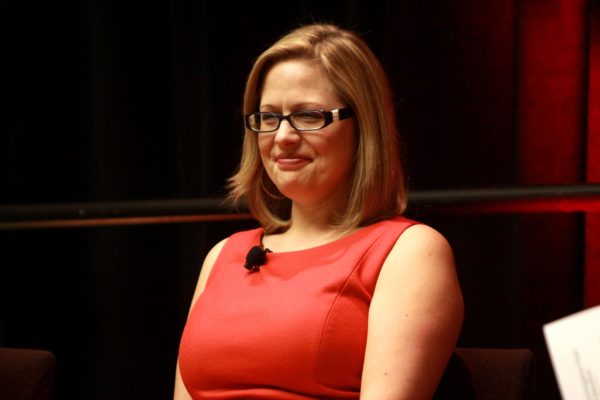A Broken Political System
The United States of America is in interesting times, to put it lightly.
Courtesy of e_tothe_ipi/Flickr
The Library of Congress
November 4, 2017
The United States of America is in interesting times, to put it lightly.
We have a President who is not “normal”…under any circumstances and is unlike any leader to have come before.
The Trump administration is under investigation at the time of this writing for possible Russian-Trump collusion, while Americans are dealing with massive problems that need solving…now.
Healthcare, gun control issues, climate change, women’s rights on multiple levels, tax reform, and immigrants/refugee issues.
Whether or not Trump is doing a good job is subjective.
Personally, I do not think he is doing a good job- but that’s not the issue.
Trump has the power to affect many things in our lives- but problems run deeper than the office of President. The real problem lies within an archaic party system that the U.S. currently has.
The idea of a two-party system sounds good on paper. A group of individuals who share common beliefs and that come together to focus on things that matter to them. The whole idea of the party system is to have different inputs of certain situations. To hear sides of issues that one may not have thought about from the other party. To come together, despite different ideals and to create a solution that caters to them while creating solutions.
Sounds good…so what’s the problem?
Tribalism.
Democrats and Republicans don’t like each other.
They have become immovable; they stick to their own groups and are constantly at each other’s throats.
We see it every day on major news outlets and on social media. One news organization complains about Trump’s actions while another praises him. An opinion post on Twitter or Facebook will most likely get backlash from any individual opposing the view.
Democrats and Republicans are constantly trying to diminish each other’s power solely because of their party affiliation.
There is no cooperation; we classify everything in our government. The President cannot become President if they don’t choose a party and we collectively say (through our vote) that a party holds the majority. Right now, it is a Republican majority and Republicans will do everything in their power to get rid of anything even remotely Democratic. The proof is in the recent failures of the repeal and replace healthcare bill the Republicans created.
When Obama was President, the Republicans opposed the Affordable Care Act (Obamacare) and they complained about it and asked for changes. The kicker is they actively stayed away and voted against the bill.
Obamacare passed but instead of working with the Democrats, who were the majority at the time, they ignored them and continued to complain.
Fast forward to Trump as President. The Republicans had their chance to repeal and replace but their version was wildly unpopular. Because the Republicans wrote the bill last minute as if they only wanted to repeal a bill implemented by Democrats. Republicans created the bill behind closed doors, didn’t invite any Democrats, nor the public. The bill would have stripped many people of the insurance coverage that Obamacare provided.
Instead of using the eight years when Obama was president to create an adequate, sensible healthcare bill for the future the Republicans decided to do nothing.
The result ended in the Republicans not getting their healthcare passed. Which isn’t a loss because the bill would have caused 23 million Americans to lose their health insurance by 2026.
Healthcare is, of course, just one example but this happens with every issue imaginable. When either party has the power to weaken the opposing party they seize the opportunity.
Our political system runs on the fuel of spite by making sure the opposing party doesn’t have their way. Instead of looking out for the people of America, the echo chamber way of thinking has clouded most politicians, and sadly, many Americans.
What is interesting is that when America was founded in 1776, problems with parties were an issue as well.
Our first sitting president, George Washington, knew the dangers of parties and even warned us about them in his farewell address letter…
“The alternate domination of one faction over another, sharpened by the spirit of revenge, natural to party dissension, which in different ages and countries has perpetrated the most horrid enormities, is itself a frightful despotism. But this leads at length to a more formal and permanent despotism. The disorders and miseries which result gradually incline the minds of men to seek security and repose in the absolute power of an individual; and sooner or later the chief of some prevailing faction, more able or more fortunate than his competitors, turns this disposition to the purposes of his own elevation, on the ruins of public liberty.
Without looking forward to an extremity of this kind (which nevertheless ought not to be entirely out of sight), the common and continual mischiefs of the spirit of party are sufficient to make it the interest and duty of a wise people to discourage and restrain it.”
These are words of caution from Washington-written in 1796.
This short excerpt is shockingly relevant in 2017.
What can we do?
We can begin by eliminating the mindset we have for people with regard to party affiliation. Instead of seeing someone as a liberal, conservative, democrat, or republican, why not view him or her as an individual with a different perspective?
We need to start having conversations with people who have different ideas about issues. Because we need to start understanding all angles if we are to come up with solutions to many of America’s relevant problems.
A small start yes, but a hopeful one to real solutions.


